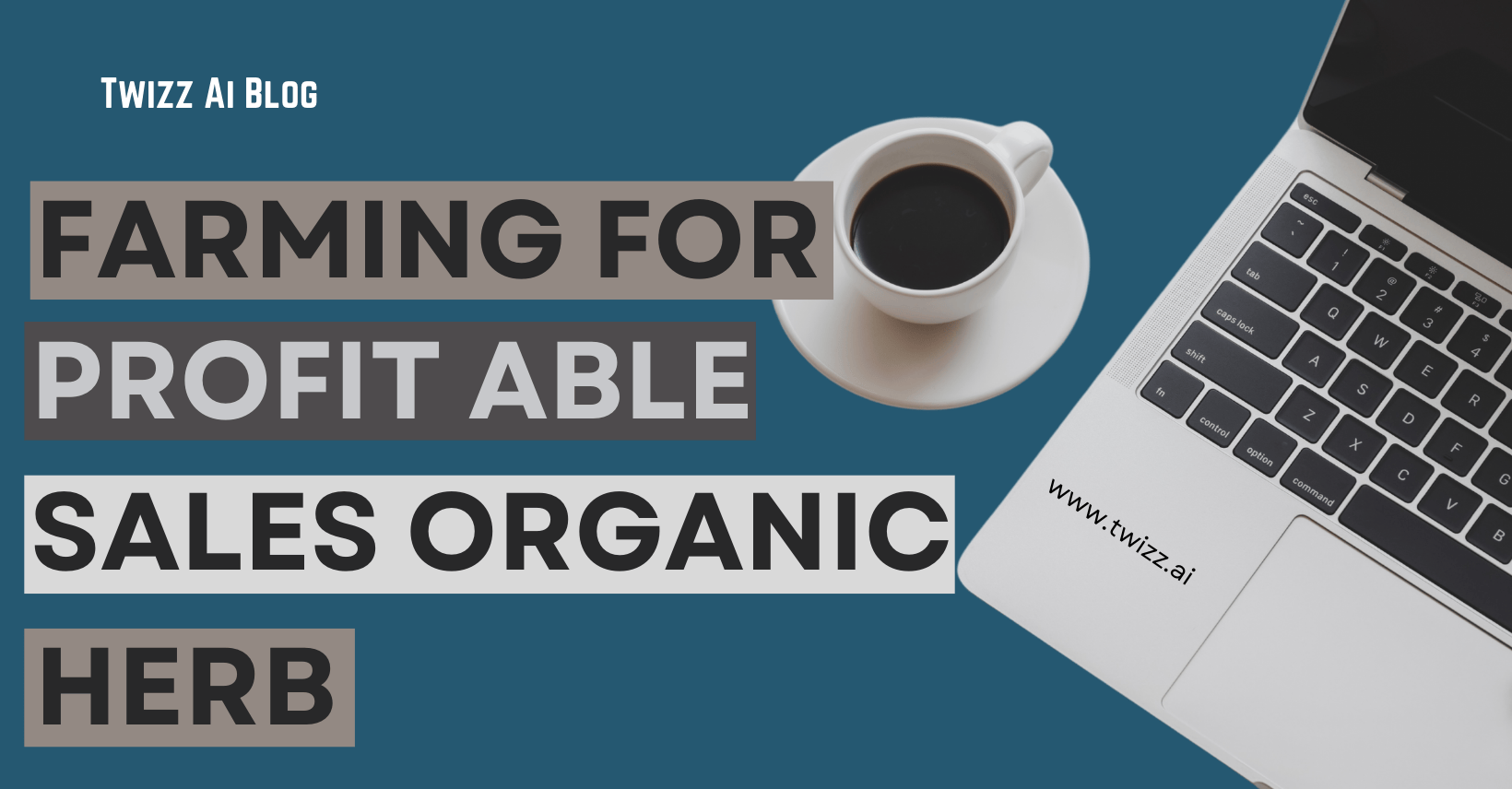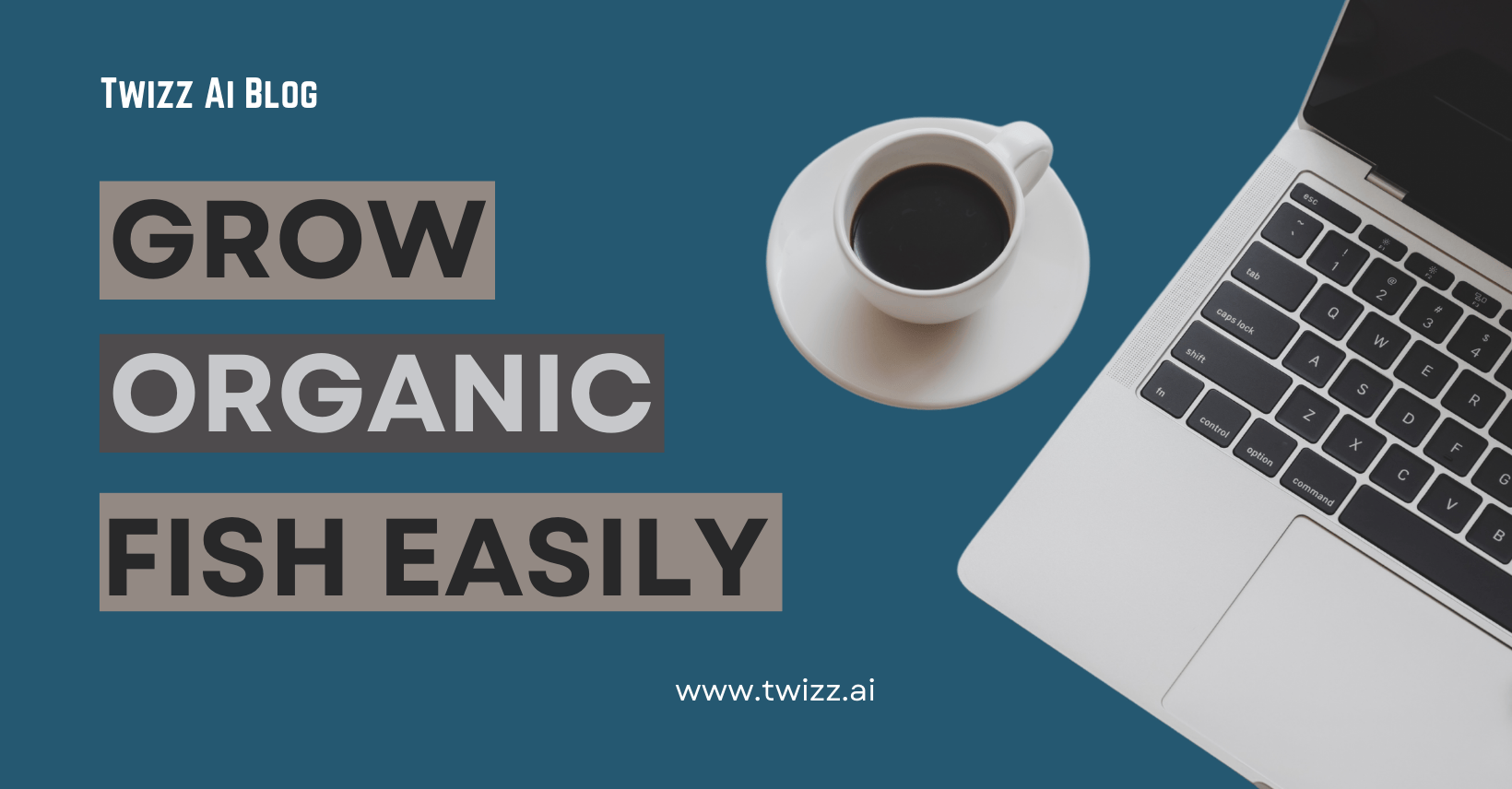Organic Herb Farming for Profitable Sales in Health Stores and Online Platforms
Overview of Organic Herb Farming
Organic herb farming emerges as an innovative pathway for generating sustainable income while nurturing the environment and bolstering holistic well-being. This form of agriculture eschews synthetic additives and embraces nature’s inherent processes. In today’s eco-conscious world, consumers are increasingly drawn to naturally cultivated botanicals that offer therapeutic benefits without adverse side effects. The rise of health stores and digital marketplaces presents an unprecedented opportunity for organic herb cultivators to establish a profitable niche. This article navigates the multifaceted realm of organic herb farming while interweaving strategic insights, inventive cultivation techniques, and actionable tips designed for experts and connoisseurs alike.
Navigating the Organic Herb Farming Landscape
A deep understanding of organic methodologies is essential for achieving excellence in herb farming. Embracing traditional wisdom alongside modern innovations yields a fertile ground for creativity and profitability. Central to this process is permaculture, which integrates biodiversity and sustainability into every facet of the operation. This synergy between ancient practices and contemporary research enhances yield quality and strengthens market positioning.
Innovative Cultivation Techniques
Cutting-edge strategies such as intercropping and companion planting foster a biodiverse ecosystem where each herb complements the growth of its neighbors. Employing soil rejuvenation practices, including incorporating biochar and mycorrhizal fungi, promotes a thriving subterranean network that optimizes nutrient absorption. Advanced irrigation methods that mirror natural rainfall patterns further conserve water resources while ensuring optimal hydration levels for each species. These progressive techniques embody an idiosyncratic approach that transcends conventional agricultural practices and creates a distinctive brand narrative.
Soil Rejuvenation and Biodiversity
A cornerstone of organic herb farming is maintaining vibrant, living soil. By integrating natural compost, green manures, and organic mulches, farmers can nurture an environment teeming with beneficial microorganisms. This dynamic ecosystem acts as a natural defense against pests while naturally enriching the soil. Crop rotation and the use of cover crops sustain soil vitality over the long term. Each plot becomes a microcosm of nature’s intrinsic balance, reinforcing the organic certification and bolstering consumer confidence in the purity of the produce.
Market Dynamics and Profitability
The market for organic herbs is evolving rapidly as consumers pivot towards products that align with a healthier and more sustainable lifestyle. Health stores, herbal apothecaries, and online platforms have become critical channels for reaching a discerning clientele. The intersection of consumer demand and digital transformation creates a robust framework for profitable sales. In this dynamic market landscape, organic herb farmers must cultivate exceptional produce and strategic marketing acumen.
Emerging Trends in Health and Wellness
Health consciousness now permeates all layers of society. Consumers increasingly seek natural alternatives to conventional medicine, turning to herbal remedies that have been celebrated for centuries. As scientific research substantiates the efficacy of many botanicals, the demand for organic herbs continues to surge. This burgeoning interest in natural wellness has led to a renaissance in traditional herbal practices. With a narrative steeped in heritage and modern scientific inquiry, organic herb farming resonates with diverse customers, from holistic health enthusiasts to rigorous academics.
Sales Channels Brick-and-Mortar and Digital
Diversification of sales channels is critical for reaching a broad customer base. Physical health stores offer a tactile experience where consumers can assess the quality and aroma of fresh herbs. These brick-and-mortar outlets often serve as community hubs that educate customers on the virtues of organic cultivation. Conversely, online platforms provide a scalable avenue that transcends geographical constraints. Leveraging e-commerce strategies such as engaging social media content, influencer collaborations, and search engine optimization can significantly enhance visibility and customer engagement. In this dual-channel approach, organic herb farming transitions into a versatile enterprise marrying tradition with technology.
Practical Tips and Strategies for Success
Success in organic herb farming is an intricate endeavor that demands a comprehensive approach blending agronomic expertise, creative marketing, and a robust operational framework. To empower experienced practitioners on their journey to profitability and sustainability, the following expanded tips and strategies provide a deep dive into actionable insights and innovative practices.
Comprehensive Agronomic Practices
A solid foundation begins with a detailed understanding of organic cultivation. A proactive approach involves continuous soil testing and nutrient management, ensuring every planting season builds on the previous one. By integrating crop rotation and companion planting practices, you can maintain soil fertility and naturally suppress pest populations. Here are some key practices:
Seed Selection and Genetic Diversity:
- Invest in high-quality, organically certified seeds that are well-adapted to your local conditions. Explore heritage varieties and lesser-known cultivars that may possess unique flavors or medicinal properties. This genetic diversity minimizes vulnerability to pests and diseases and caters to niche markets seeking rare botanicals.
Advanced Soil Amendments:
- Enhance your soil with organic compost, green manures, and biochar. These amendments work synergistically with beneficial microorganisms to improve soil structure, water retention, and nutrient availability. Consider periodic soil amendments based on seasonal nutrient profiles, ensuring that each crop cycle optimizes the land’s natural fertility.
Integrated Pest Management (IPM):
- Adopt IPM practices using natural predators, biopesticides, and organic deterrents to keep pest populations in check. Establishing hedgerows and interplanting with aromatic herbs can deter pests while attracting pollinators. Regular monitoring and early detection of issues will help in preventing outbreaks without the use of synthetic chemicals.
Precision Irrigation and Climate Control:
- Invest in sensor-based irrigation systems that monitor soil moisture and adjust water delivery in real time. Coupled with climate monitoring devices, these technologies allow you to fine-tune environmental conditions to meet the specific needs of your herbs, thereby optimizing growth cycles and minimizing waste.
Innovative Marketing and Branding Techniques
A well-crafted marketing strategy in an increasingly digital and interconnected marketplace can elevate your organic herb business from a local venture to a recognized brand. Crafting an engaging narrative around your farming practices builds consumer trust and creates a memorable brand identity. Consider these marketing strategies:
Compelling Storytelling:
- Develop a brand narrative highlighting your commitment to sustainable practices, the historical roots of herbal medicine, and the artisanal care that goes into every harvest. This storytelling can be woven into your website, packaging, and social media content, resonating with consumers who value authenticity and heritage.
Digital Engagement and Content Marketing:
- Leverage digital platforms to showcase behind-the-scenes glimpses of your cultivation processes. Use high-quality visuals, informative blog posts, and engaging videos to educate your audience on the benefits of organic herbs. Interactive elements like virtual farm tours or live QandA sessions can foster a community of loyal customers who feel connected to your mission.
Strategic Partnerships and Influencer Collaborations:
- Collaborate with wellness influencers, organic lifestyle advocates, and culinary experts to broaden your reach. Partnering with reputable voices in the health and wellness sphere can amplify your message and introduce your products to niche markets that prioritize natural and organic solutions.
Targeted E-commerce Strategies:
- Build an intuitive online storefront emphasizing ease of navigation, secure transactions, and a visually appealing presentation of your products. Incorporate customer reviews, detailed product descriptions, and usage tips highlighting each herb’s therapeutic properties. Consider subscription models or curated seasonal boxes that offer convenience and variety for your customers.
Robust Operational and Quality Framework
A resilient operational framework is the backbone of a profitable organic herb farm. Focusing on quality assurance, efficient supply chain management, and strategic planning can streamline your operations and build long-term customer trust. Here are essential strategies:
Rigorous Quality Control and Certification:
- Engage with organic certification bodies early to ensure your production process meets the highest standards. Implement systematic quality checks, maintain detailed records, and prepare for regular audits. This commitment to quality reinforces your brand’s credibility and opens the door to premium markets.
Streamlined Supply Chain Management:
- Develop strong relationships with local distributors, health stores, and online retailers. A well-managed supply chain can reduce delivery times, maintain product freshness, and enhance customer satisfaction. Use technology to track inventory, forecast demand, and manage logistics efficiently, ensuring your herbs reach consumers in peak condition.
Training and Workforce Development:
- Invest in continuous training for yourself and your team. Workshops on sustainable farming techniques, technological advancements, and digital marketing can equip your workforce with the necessary skills to adapt to a rapidly evolving industry. A knowledgeable team can drive innovation and ensure that best practices are consistently applied across the farm.
Data-Driven Decision Making:
- Utilize digital analytics to monitor crop performance, consumer behavior, and market trends. Data-driven insights can guide your strategic decisions, from adjusting cultivation schedules to refining marketing campaigns. This analytical approach ensures that your practices remain agile and responsive to environmental and market changes.
Enhancing Customer Engagement and Loyalty
Building a strong relationship with your customers is crucial for sustained success in organic herb farming. Engage your clientele with personalized interactions, loyalty initiatives, and educational experiences that reinforce the value of your products. Consider these methods:
Loyalty and Referral Programs:
- Develop reward systems that encourage repeat purchases and incentivize customers to refer friends and family. Exclusive discounts, early access to new product lines, and loyalty points can transform occasional buyers into devoted advocates for your brand.
Educational Outreach:
- Host webinars, workshops, and farm visits that provide insights into organic herb cultivation and holistic wellness practices. By sharing your expertise and the story behind your farm, you create an immersive experience that educates and builds an emotional connection with your audience.
Responsive Customer Service:
- Implement a customer service framework that is both accessible and empathetic. Quick responses to inquiries, transparent communication about product origins, and proactive solutions to issues contribute to a positive customer experience. This level of engagement can foster long-term trust and loyalty.
Embracing Sustainability and Continuous Innovation
A commitment to sustainability and a willingness to embrace new ideas are the hallmarks of a successful organic herb farm. This mindset minimizes environmental impact and keeps your operations at the forefront of industry advancements. Here are key strategies to foster innovation:
Adopting Renewable Energy Solutions:
- Transition to renewable energy sources such as solar or wind power to decrease your carbon footprint. Energy-efficient practices, including LED lighting and automated systems, can reduce operational costs and promote environmental stewardship.
Exploring Emerging Technologies:
- Stay informed about the latest precision agriculture, biotechnology, and data analytics developments. Experiment with technologies that enhance plant growth, optimize resource use and predict market trends. These innovations can transform traditional farming practices and increase efficiency and profitability.
Collaborative Research and Development:
- Engage with academic institutions, agricultural research centers, and fellow farmers to share knowledge and develop new cultivation techniques. Collaborative research initiatives can provide access to cutting-edge methods and foster a community of practice dedicated to advancing organic farming methodologies.
Ecofriendly Packaging and Waste Management:
- Consider sustainable packaging solutions that reflect your commitment to the environment. Biodegradable or recyclable materials appeal to eco-conscious consumers, reduce waste, and enhance your brand’s ethical appeal. Developing a waste management system that recycles organic waste into valuable compost reinforces your sustainable practices.
Financial Management and Strategic Investment
Prudent financial planning is essential for ensuring that your organic herb farming venture remains profitable over the long term. Balancing short-term expenses with long-term investments can secure both growth and stability. Consider the following financial strategies:
Budgeting and Cost Analysis:
- Develop detailed budgets that account for all aspects of your operation, from seed purchase to marketing expenditure. Regular cost analysis can help identify areas where efficiency can be improved without compromising quality. Transparent financial practices are crucial for securing potential investments and partnerships.
Investing in Technology and Infrastructure:
- Allocate resources for state-of-the-art farming equipment, automated systems, and digital marketing tools. These investments can yield substantial returns through increased yield, reduced labor costs, and enhanced market reach. Keeping abreast of technological advancements and reinvesting in your infrastructure is critical for long-term success.
Securing Funding and Grants:
- Explore opportunities for financial support through government grants, agricultural subsidies, and partnerships with eco-friendly investors. A robust funding strategy can provide the capital needed to expand your operations, invest in research, and implement innovative projects that drive growth.
Cultivating a Future-Ready Business Mindset
To thrive in the competitive realm of organic herb farming, cultivating a future-ready business mindset is paramount. This involves adapting to current trends and anticipating future shifts in consumer preferences, technological advancements, and regulatory landscapes. A proactive approach includes:
Regular Strategic Reviews:
- Periodically assess your business model, market position, and operational efficiency. Regular strategic reviews can help identify emerging opportunities and areas for improvement. Adapting your strategies in response to both internal performance and external market trends is key to staying ahead of the curve.
Networking and Community Building:
- Build robust networks with industry experts, local farmers, and sustainability advocates. Participation in conferences, trade shows, and online forums can provide valuable insights and foster collaborative opportunities. Sharing experiences and challenges with peers can also spark innovative ideas and solutions.
Embracing Change with Agility:
- Remain open to new ideas and be willing to pivot when necessary. Adapting quickly to market demands or environmental changes can be a competitive advantage. Cultivating a culture of continuous learning and flexibility among your team will ensure that your farm remains resilient in the face of uncertainty.
By implementing these comprehensive strategies, organic herb farming can evolve from a traditional practice into a dynamic enterprise that thrives on innovation, sustainability, and customer engagement. Each facet—from agronomy to marketing, operations to finance—intertwines to form a holistic approach that drives profitability and contributes positively to the environment and community well-being.
Embracing these practices passionately and precisely transforms your herb farm into a beacon of sustainable agriculture and a profitable venture in an increasingly competitive market. The journey is continuous, with every harvest offering new insights and every innovation paving the way for future growth. Through dedicated research, strategic investment, and an unwavering commitment to quality, your organic herb farming venture is poised to flourish in the digital age and beyond.
Cultivation Best Practices
Invest in high-quality seeds genetically selected for vigor and disease resistance. Prioritize soil testing and adopt a rigorous regimen of natural amendments to maintain optimal pH levels and nutrient profiles. Employ modular cultivation designs that allow for flexibility in crop rotation and maximize the use of available space. Embrace integrating traditional techniques with modern automation systems such as sensor-based irrigation and climate monitoring. Such innovations empower farmers to react promptly to environmental fluctuations and optimize yield quality.
Quality Assurance and Certification
Securing organic certification is more than a regulatory requirement; it is a testament to the integrity of your produce. Engage with local certification bodies early in the process and implement rigorous quality control protocols. Meticulous record-keeping and transparent supply chain management enhance consumer trust and facilitate access to premium markets. Consider third-party audits and certifications that verify your adherence to organic standards. This proactive approach to quality assurance reinforces your brand’s reputation and underpins long-term profitability.
Marketing and Storytelling
A compelling brand narrative is the linchpin of successful market penetration. Craft a story that encapsulates your journey, the heritage of your practices, and your commitment to environmental stewardship. Emphasize the artisanal nature of your products and the symbiosis between nature and innovation. Tailor your messaging to resonate with both traditional herbalists and modern health aficionados. Utilize multimedia content such as high-definition images, interactive farm tours, and in-depth interviews that provide a window into your cultivation processes. This authenticity captivates expert audiences and creates an emotional connection that translates into repeat business.
Leveraging Digital Platforms
In the digital age, a robust online presence is indispensable. Develop a user-friendly website that showcases your products, highlights customer testimonials, and features educational content on organic herb benefits. Invest in search engine optimization and social media marketing to attract targeted traffic. Consider establishing an online subscription model that offers seasonal herb bundles, curated wellness kits, or bespoke herbal consultations. Digital analytics can guide your marketing strategy by providing insights into consumer behavior and preferences. Embracing data-driven decision-making enables you to continuously refine your approach and stay ahead in an increasingly competitive market.
Customer Engagement and Retention
Fostering lasting relationships with customers is paramount for sustained success. Implement loyalty programs that reward repeat purchases and incentivize referrals. Host webinars, live QandA sessions, and community events that offer insights into organic herb cultivation and holistic wellness. Personalized communication through email newsletters and social media interactions can further solidify your connection with customers. Listening to feedback and adapting your offerings demonstrates a commitment to excellence that builds brand loyalty. This proactive engagement strategy transforms one-time buyers into lifelong advocates.
Sustainability and Continuous Innovation
Embracing a forward-thinking mindset is essential in an industry that thrives on evolution. Constantly explore novel cultivation techniques, experiment with hybrid plant varieties, and invest in research collaborations with agricultural experts. Adopt eco-friendly packaging solutions and integrate renewable energy sources into your operational framework. Sustainable practices reduce environmental impact and position your brand as a pioneer in the organic movement. Continuous innovation ensures your enterprise remains dynamic and resilient in changing market conditions and consumer expectations.
The Future of Organic Herb Farming
Looking ahead, the future of organic herb farming appears both promising and challenging. With increasing global interest in natural health solutions, the demand for organically grown botanicals will expand. Emerging technologies such as precision agriculture and artificial intelligence may revolutionize cultivation methods by providing real-time insights and automating complex processes. However, this evolution requires a delicate balance between technological advancement and adherence to traditional practices that have long defined organic agriculture.
Market dynamics are poised to shift as consumers become more discerning and regulatory frameworks tighten. Farmers must stay abreast of global trends and adapt to evolving standards while preserving the authenticity of their practices. Collaborative networks among growers, researchers, and distributors will foster an environment of shared knowledge and innovation. By embracing these emerging paradigms, organic herb farming can secure its position as a cornerstone of sustainable agriculture and holistic wellness.
Conclusion
Organic herb farming represents an intricate tapestry of tradition, innovation, and sustainability that has the power to transform lives and communities. Organic methodologies, strategic marketing, and digital innovation provide a robust platform for profitable sales in health stores and online platforms. By harnessing the potential of innovative cultivation techniques, ensuring rigorous quality assurance, and weaving a compelling narrative, practitioners can navigate the competitive market landscape with confidence and creativity.
This journey demands meticulous planning, continuous experimentation, and an unwavering commitment to environmental stewardship. Expert growers who embrace these principles are well-positioned to achieve financial success and contribute to a healthier, more sustainable future. With an ever-growing consumer base that values authenticity and quality, the organic herb farming sector offers a fertile ground for visionary entrepreneurs to cultivate prosperity and positive change.





